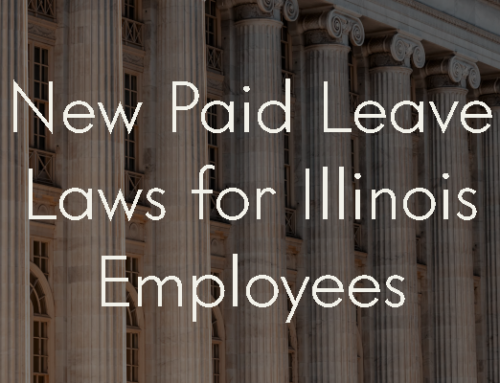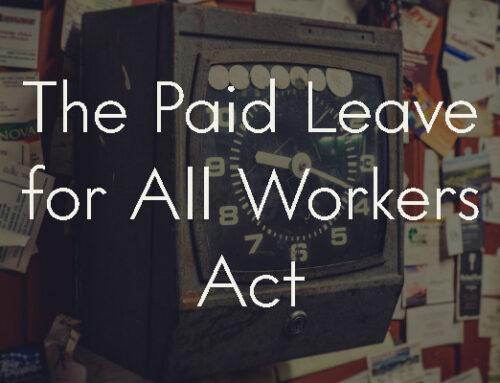Disclaimer: We are not experts in health or policy and make no guarantees as to the accuracy or timeliness of the details on this page. This page is for informational purposes only. See our full COVID-19 disclaimer for more.
If your business has hit trouble because of the pandemic and you need guidance, the attorneys at G & G Law have assembled a toolkit of accessible, easy-to-digest information that answers many common questions we’ve received from our clients. You can read more about it and purchase it here.
Last updated May 7th, 2020
On April 23rd, 2020, Governor JB Pritzker extended Illinois’s shelter-in-place order through May 31st and announced some changes that it will bring. Perhaps most notably, individuals in Illinois are now required to wear masks in indoor public spaces, like stores, and in any public space where they cannot maintain proper social distancing (at least 6 feet).
There were also several updates in the May Shelter-in-Place order that concern businesses. We’ve summarized these developments below:
- What does “Shelter-in-Place” mean for my business?
- What businesses are “Essential?”
- What can non-essential businesses do?
- What are the requirements for businesses that can continue operating?
What does “Shelter-in-Place” mean for my business?
At its core, the shelter-in-place order demands two things of Illinois businesses:
- Stay at home, except for “Essential” Activities or working at “Essential” Businesses/Operations.
- Shut down your business, except:
- to the extent that your company can use remote employees and
- if you are an “Essential” Business/Operation.
We published a detailed summary of the original shelter-in-place order as it related to businesses when it was first announced.
The May rule also adds:
- All businesses must evaluate whether employees can work from home, and allow them to do so if possible.
- All businesses with in-person employees must post an Illinois Department of Public Health guidance in their place of business, which you can find here.
What businesses are “Essential?”
All businesses deemed “Essential” in the original order still are (find a full list here).
The May order also adds the following as “Essential” Businesses/Operations:
- State parks (as designated by the Illinois Department of Natural Resources), fishing and boating businesses, and golf courses (so long as they follow set by the Illinois Department of Commerce and Economic Opportunity)
- Pet grooming services
- Schools, to the extent necessary to facilitate end-of-year pick-up of supplies and belongings, and so long as the social distancing guidelines are met.
What can non-essential businesses do?
If your business cannot operate remotely and is not listed as an “Essential” Business, it can only do the following:
- The minimum necessary to maintain the value or condition of the business’s inventory, physical plant, and equipment; ensure security; process payroll and employee benefits; or for related functions
- The minimum necessary to help employees work remotely from their residences
- Retail stores not identified as “Essential” can also fulfill telephone or online orders through delivery and curbside pick-up (all safety obligations apply – employees must have access to masks and hand sanitizer, etc.)
What are the requirements for businesses that can continue operating?
If your business is staying open, whether it’s “Essential” or if you are doing any of the permitted activities for a temporarily closed business, your business needs to:
- NEW: Provide face coverings to all employees who can’t maintain a six-foot distance at all times, plus additional protective equipment for higher-risk jobs
- Mark six-foot distances with signs, tape, or other means to maintain proper social distancing between employees and customers in line
- Have hand sanitizer and sanitizing products readily available for employees and customers
- Have separate operating hours for vulnerable populations
- Online and remote access: Continue services by phone or remotely, and post online whether a facility is open and how best to reach it
Stores deemed “Essential” will also have the following requirements:
- Cap occupancy at 50% of store capacity (or occupancy limits in the Illinois Department of Commerce and Economic Opportunity guidelines, which we will link to when available)
- Set aisles to be one-way where possible, with signage
- Post signage communicating the requirements of the new order, including:
- The mask requirement while in the store
- Households must limit the number entering to the store to a minimum
- Stop allowing reusable bags
Manufacturers deemed “Essential” must also take appropriate cautions, which may include:
- Staggered shifts
- Reduced manufacturing speeds
- Operating only essential lines
- Ensuring that all employee gathering spaces allow for social distancing
- Downsizing to the extent necessary to comply with social distancing and provide a safe workspace
The Shelter-in-Place Order described above is expected to be signed April 30th, 2020. We’ve posted the rules ahead of time to help businesses prepare for their new obligations.





